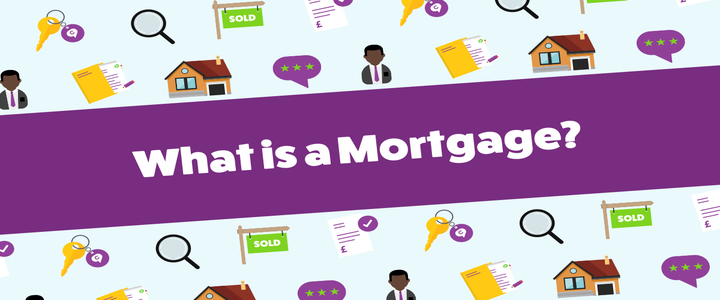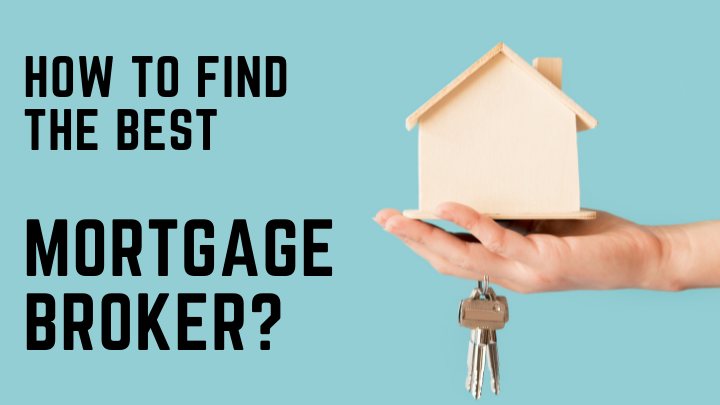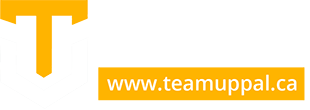An Extensive Guide for First-Time Home Buyers
- Home
- Blog
It’s an exciting time but can also be overwhelming – especially if you don’t know where to begin. We’ve laid out some steps anyone looking to buy a home should follow, starting with determining what they can afford to purchase it. Next, you need to get pre-approved for mortgage financing and understand the government programs that will help you. We have all the answers to your questions in our comprehensive guide for first-time buyers. This guide will help you avoid some common first-time home buyers mistakes.

Step 1 - The cost of home ownership in Canada
Should You Buy a Home?
There are many advantages to homeownership. You don’t have to be at the mercy of landlords who can make any decisions, including whether to stop renting out the property. And you might even be able to rent your home out to generate rental income. Because they appreciate over time, houses are a safe investment.
Although it is a common goal to own a home, not everyone can afford it. Josh Davie, a financial advisor at Desjardins Financial Security Investments Inc, said that while home ownership may be a good option, “It all depends on your circumstances.” Renting is a better option if your job is uncertain, or you plan to move shortly.
The True Costs Of Homeownership
The Downpayment
Let’s begin with the down payment. This is the lump sum you have to pay towards the cost of your new home. You must have liquid funds that you have either saved or have access to.
According to Canadian government rules, the amount of down payment you will need depends on the price of your home.
Buy Price | Required Minimum Down Payment |
$500,000 or less | 5% of your purchase price |
From $500,000 to $999.999 | 5% of the initial $500,000 purchase price + 10% of the amount above $500,000 |
$1 Million or More | 20% of the purchase price |
The Deposit
The deposit is required at the time you sign a purchase agreement for a property. Although the deposit counts towards your down payment, it is usually non-refundable. If you cancel before the deal closes, you could lose that money.
There is no minimum deposit in Canada. A guideline of 5% is used for homes worth $1 million. This would be equal to $50,000. Some sellers are willing to accept less than 5% due to the rapid rise in housing prices. There is usually room for negotiation, but a deposit in the amount of 5% shows the seller that you are serious and can help you secure the deal in competitive housing markets. Remember that funds must be readily available as they are usually due within 24 hours after signing a contract.
Closing Costs
There are also closing costs. These costs include attorney fees, land transfer taxes, and other administrative fees. They can vary depending on the property’s price and location. However, they usually add up to 1.5% to 4.5% of the purchase price. You can either save additional money to cover closing costs if you have $50,000 saved for a down payment or subtract those expenses from your down payment.
Also, you should save money for home inspections, utility hookups, and prepaid fees for the property (for example, to reimburse the previous owner for any property taxes or condo fees paid in advance), as well as furniture and appliances that you will need.
Tax Rebates and Government Programs For First-Time Home Buyers
Many government programs and tax incentives are available to assist first-time home buyers in getting into the housing market.
The Home Buyers Plan
This plan allows you to withdraw up to $35,000 from your RRSPs ($70,000 for a couple) to make a down payment on your first house. You can withdraw this money and use it without taxation or penalty as long as you repay your RRSP within 15 years.
First-Time Home Buyer Incentive
First-time home buyers who meet the eligibility criteria can get an interest-free loan equal to 5% or 10% of their purchase price. This loan can be used towards their down payment. The government will retain a 25% stake in the property. This must be repaid within 25 years or the home’s fair market value.
Canadians can apply for the Home Buyers Tax Credit
This credit is available to those who have owned a house for less than four years. For a $750 rebate, new homeowners can claim up to $5,000 in tax credits. The federal government proposed increasing the credit amount to $10,000 for homes that were purchased after January 1, 2022. Home buyers would receive a rebate of up to $1500 on the new credit amount.
First Home Savings Account
This new type of registered account was introduced in the 2022 federal budget. It is designed to help first-time home buyers save for a downpayment. All income from interest, dividends, or capital earned is exempted from tax on account deposits and withdrawals. An individual can contribute up to $8,000 to their FHSA each year, with a lifetime limit of $40,000. An FHSA can hold funds for up to 15 years. After that, the money can be transferred to an RRSP, a registered retirement income plan (RRIF), or withdrawn from taxable income. FHSAs will be made available by the government in cooperation with financial institutions by 2023.
A Land Transfer Tax Rebate
The provinces of Ontario and British Columbia offer rebates on land tax to eligible buyers. Also, the City of Toronto, which is the only municipality in Ontario that imposes a land tax, offers land tax rebates. The amount that you might be eligible for depends on the jurisd
Step 2: Understanding Your Mortgage.

What's a mortgage?
- Term: The term of your mortgage contract. The term can be as short as six months or as long-term as five years.
- Mortgage amortization: How long it will take to repay your mortgage. Major Canadian lenders typically offer amortization periods of between five and 25 years. The maximum is 30 years if you have at least 20% down. Buyers usually complete multiple mortgage terms before they pay off the entire loan.
- The interest rate: The is the amount you will pay on your mortgage. The interest is added to your regular mortgage payment. The principal amount borrowed is paid down in the remaining portion.
- Open and closed mortgages: This refers to the degree of flexibility you have in terms of your mortgage repayment terms. An open mortgage is best if you can refinance, renegotiate, or repay beyond the original terms. Closed mortgages don’t allow flexibility. It will usually have a lower interest rate.
Fixed rates and variable rates
A fixed-rate ensures that the mortgage interest remains the same for the entire term. Variable rates allow the interest rate to fluctuate according to market conditions.
Fixed mortgage rates for five years: This interest rate is locked for five years. You can therefore predict how much your mortgage payments will be over the term of your contract. Fixed rates are more predictable than variable rates, but they are generally higher.
Five-year variable mortgage rates: These mortgages come with five-year terms. The interest rate charged may change throughout the contract, which is not the case with fixed-rate mortgages. Your mortgage terms may dictate that your regular payments may be modified or maintained the same regardless of changes in interest rates.
What is the maximum amount I can afford for a mortgage?
The total cost of your house minus the down payment is what the mortgage is. Your gross debt service ratio (GDS) and total debt service ratio (TDS) will be considered when you apply for a mortgage. This is to determine how much mortgage you can afford with your income and debt.
These numbers will affect the amount of mortgage you are offered. They represent a measure of your income relative to your expected housing expenses and debt. TDS equals the total expenses for your new home (i.e., your mortgage payments, heating bills, and taxes) divided by your gross income. GDS is the sum of all these housing expenses and your debt payments (such as a car loan or revolving line of credit), divided by your gross household income.
Canada Mortgage and Housing Corporation, Canada’s national housing agency considers a home affordable if the GDS and TDS are within the limits of 39% and 44%.
Why do you need to get pre-approved?
Once you have an idea of your financial capabilities, it’s time to apply for pre-approval.
Pre-approval is about getting your paperwork in order, including your credit report, verifying income, and making sure that the price you are looking at is reasonable based on your debt-to-income ratio. You will need a 90-day record of the funds used to pay your down payment. This helps prevent money laundering when criminals hide money through real estate transactions
How much can you afford?
Pre-approval for a mortgage will give you an idea of what banks and lenders are willing to lend, but it’s not the same as understanding your actual financial situation.
What’s the mortgage stress test?
The mortgage stress test is something you may have heard about. This is a set of rules that lenders use to determine whether buyers are eligible for a mortgage, and if so, how much. This applies to buyers who have a 20% down payment.
The stress test was introduced the stress test to ensure that Canadians would still be able to afford their homes if interest rates rose.
In 2021, the mortgage stress test was modified. The new rules require lenders to apply a benchmark rate equal to 5.25%, or a rate equivalent to 2% above the rate being offered.
The stress test is part of your mortgage application. It applies to all property buyers in Canada, not just first-time homeowners.
Step 3 - How to Find the Best Home and Mortgage Provider

How do you choose between a lender or a mortgage broker?
First-time homebuyers may choose to apply directly for a mortgage at their bank because they are familiar with the institution and have done business there. This approach is fine. However, some people or couples prefer to keep their financial affairs under one roof. You have many options, but it is possible to save money if you compare rates online or work with a broker. A mortgage agents can help you find the right mortgage for your needs by connecting with a network lender.
A broker can help you find the right financial institution for you, as some institutions are only available to a specific demographic like self-employed people or new Canadians.
First-time homebuyers need to have a solid financial plan and a bit of creativity to get into today’s market. You can find helpful tips and tricks to help you avoid making common mistakes while shopping for your next home.
Next steps after you have purchased your first home.
Congratulations will be in order once you have signed the papers for your first home purchase. But there are a few things that you need to do immediately. Get your property covered by home insurance.
Finally, ensure you pay your mortgage and other bills on schedule to keep your credit score high and allow you to obtain another mortgage approval. You’ll likely have to do this again one day, as your first home might not be your forever residence. Cheers to your first home purchase!
